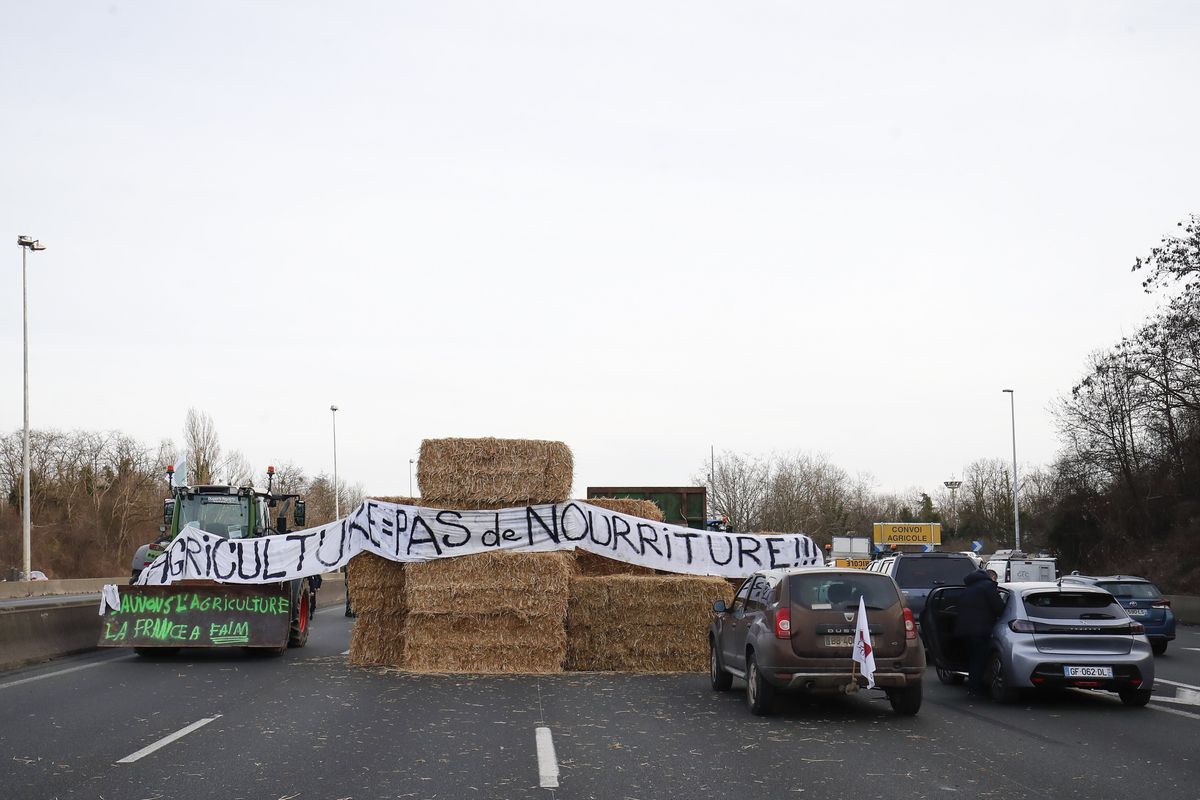Fresh out of Barnard College with a degree in political science, Riley is a writer and reporter for GZERO. When she isn’t writing about global politics, you can find her making GZERO’s crossword puzzles, conducting research on American politics, or persisting in her lifelong quest to learn French. Riley spends her time outside of work grilling, dancing, and wearing many hats (both literally and figuratively).
Farmers are flocking to Paris in response to the new Prime Minister Gabriel Attal’s agricultural policy announcement. And they aren’t coming to say merci.
They are demanding fairer prices for produce, the continuation of subsidies on gasoline, and financial aid for organic farmers.
Tractors have blocked main roads across the country and encircled Paris, cutting off access to the city’s two airports and the region’s main fresh food market at Rungis, which supplies 60% of the French capital’s fresh food. They have pledged to stay put until Thursday, when French President Emmanuel Macron will join European leaders in Brussels to discuss the EU budget and meet with European Commission president, Ursula von der Leyen, to address the agricultural crisis.
The agricultural crisis is an EU wide problem. Farmers in neighboring Belgium have also set up barricades on main highways, including into the capital, Brussels. Meanwhile, hundreds of German farmers are blocking key ports like Hamburg, one of the busiest European hubs for container shipping.
In 2023, farmer protests against environmental regulations were seen from Spain to the Netherlands. Both Germany and France’s protests were fueled over plans to discontinue gasoline subsidies because of their environmental impact. To farmers, paying for their pollution is too much with higher energy and fertilizer prices from the Ukraine war cutting into their bottom lines.
Ahead of the EU parliament elections this summer, far right and populist parties are flocking to show their support for the protests. From the AfD in Germany to Marine Le Pen in France, right-wingers are courting voters with agrarian populism, fueled by farmers feeling undervalued and overburdened by rules made by political elites, European institutions, and city dwellers who eat their food without understanding what it takes to grow it.






